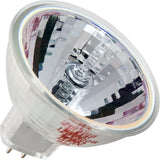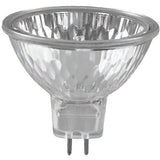Light Bulb Disposal and Recycling - The How and Why
Posted by George on for ProLampSales

The EPA recommends that all consumers learn how to dispose of light bulbs, and for good reason.
Fluorescent, LED, CFL and the many other types of light bulbs contain toxic materials that are harmful to your personal health and the environment.
But did you know that they can be recycled, and that there is a wrong way and a right way to dispose of light bulbs?
It's true!
So to learn more about the correct disposal of light bulbs, follow these five simple steps.
How to Dispose of Light Bulbs
Step 1: Switch off the light switch to protect against electrical shocks when removing a burnt-out light bulb.
Step 2: Wear a glove to protect from heat and broken glass if the light bulb should break.
Step 3: If the light bulb breaks, make sure everyone (including pets) leave the room, air the room, and turn of the heating system/AC. Use wet wipes, sticky tape, or damp paper towels to collect all the pieces. Do NOT use a vacuum.
Step 4: Keep the light bulb and any pieces in a closed airtight bag that can't be easily pierced by any broken pieces.
Step 5: Disposal. Correct disposal will depend on the type of light bulb disposal you have. For instance, halogen bulbs are safe to include in your curbside black bin, while CFLs require proper disposal at a registered facility.
But Wait, There's More! The 5 Compelling Reasons to Recycle Light Bulbs
Why would anyone go through the extra trouble to dispose of light bulbs differently than they do their regular trash? Well, there are many benefits to you, your household, and your community to dispose of them the right way.
1. Environmental Protection
Did you know that recycling the glass in light bulbs can cut down related water pollution by up to 50%?
Not only that, light bulbs contain toxic materials and chemicals inside them in small quantities - such as mercury - which may cause health problems and environmental contamination if released into the atmosphere through breakage.
For that reason, it is not advisable (and is illegal in some states) to dispose of light bulbs in landfills.
2. Components Are Reusable
The glass, tin, copper, tungsten, and mercury present in most light bulbs are all recyclable. Reusing these materials makes it cheaper to manufacture new light bulbs, makes for a cleaner environment, and sends less trash to the landfill.
3. Recycling is Free
Most communities have a free recycling program for household waste such as light bulbs. For instance, retailers such as Walmart offer recycling for unbroken light bulbs, and most fire departments offer free recycling for household hazardous waste.
You can also find a list of your local recyclers using the Association of Lighting and Mercury Recyclers locator map.
4. Compliance with the Law
The EPA classifies standard fluorescent bulbs as universal hazardous waste and have set regulations for disposal, storage, and transportation of used bulbs which varies from state to state. Ignoring disposal regulations may result in fines and penalties, especially for small business.
5. Enhanced Personal Security
If you don't know how to dispose of fluorescent light bulbs, CFLs, and other harmful light bulbs, then you may be putting yourself, your family, and visitors at risk. These risks may include exposure to mercury, and getting lacerations or infection. Correct recycling and disposal is crucial to ensure your health, and the health of future generations, is secure.
References
- Easy Pak: A Case For Fluorescent Recycling - http://www.lamprecycling.com/articles/a-case-for-fluorescent-lamp-recycling.aspx
- EPA: Compact Fluorescent Light Bulbs - https://www.epa.gov/cfl
- EZ on the Earth: Why Recycle Light Bulbs, Batteries, and More - http://www.ezontheearth.com/about-us/why-recycle
Featured Products (View All)
- 0 Comments
- Posted in Environment
0 Comments




